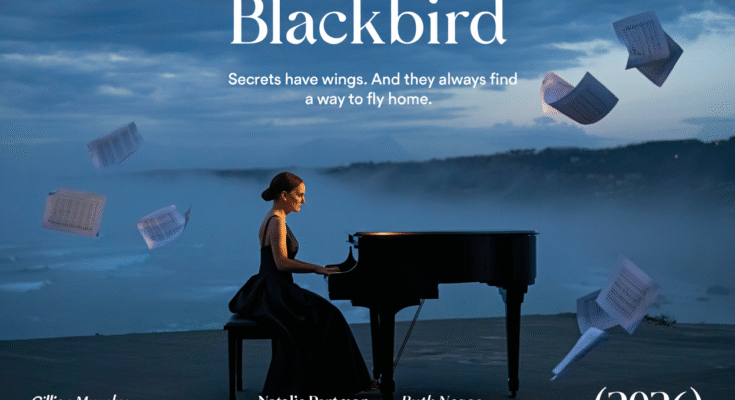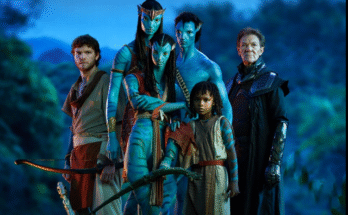There are thrillers that shock, and then there are thrillers that linger—etching themselves into the corners of your mind long after the credits fade. Blackbird (2026) belongs firmly in the latter category, a film less concerned with cheap twists and more devoted to weaving an intricate tapestry of memory, grief, and the perilous weight of secrets. Directed with unflinching precision by Ava Thornton, this is cinema as both confession and confrontation, inviting its audience into a story where the past refuses to remain buried.
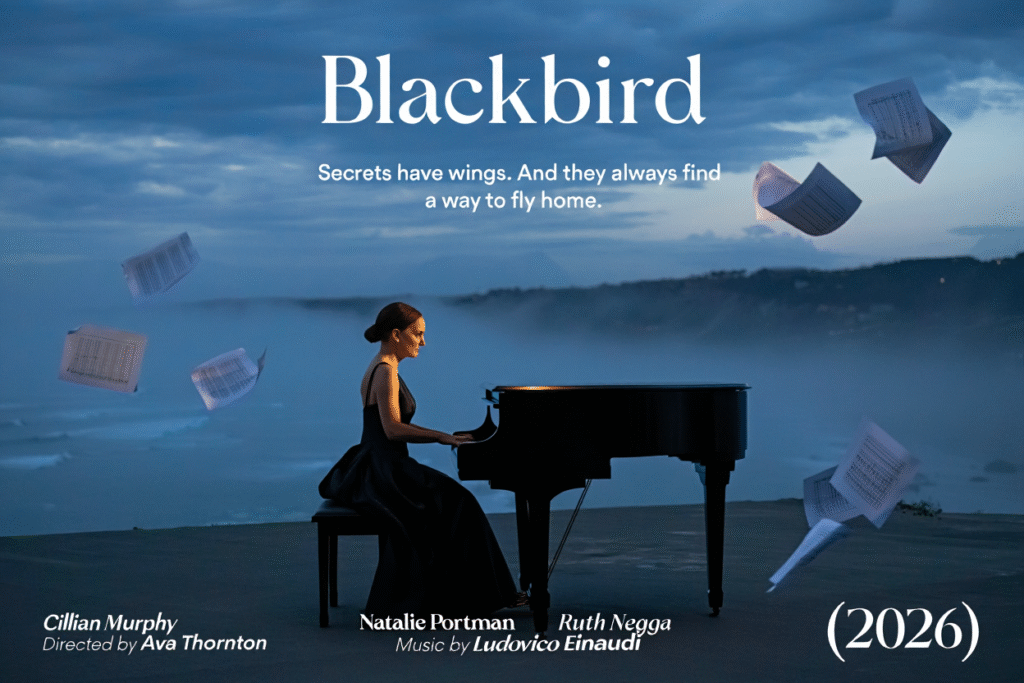
Natalie Portman delivers one of her most vulnerable and commanding performances as Elena Voss, a celebrated concert pianist whose life of acclaim and applause is suddenly unsettled by a letter—an anonymous, enigmatic piece of correspondence suggesting her sister, long believed dead, may still be alive. The decision to return to her secluded coastal hometown is not one born of hope but of necessity, an artist compelled to face the unfinished symphony of her past. Portman plays Elena with aching restraint, her every glance carrying the heaviness of both longing and fear.
Thornton’s directorial touch transforms the seaside town into more than a setting; it becomes a haunted labyrinth of memory. Windswept cliffs, abandoned cottages, and gray horizons pulse with an atmosphere of dread. With Roger Deakins behind the camera, light itself becomes a character—shadows stretch into accusations, sunlight slices like a blade, and reflections blur the line between truth and illusion. Each frame feels meticulously sculpted, a portrait of beauty tinged with unease.
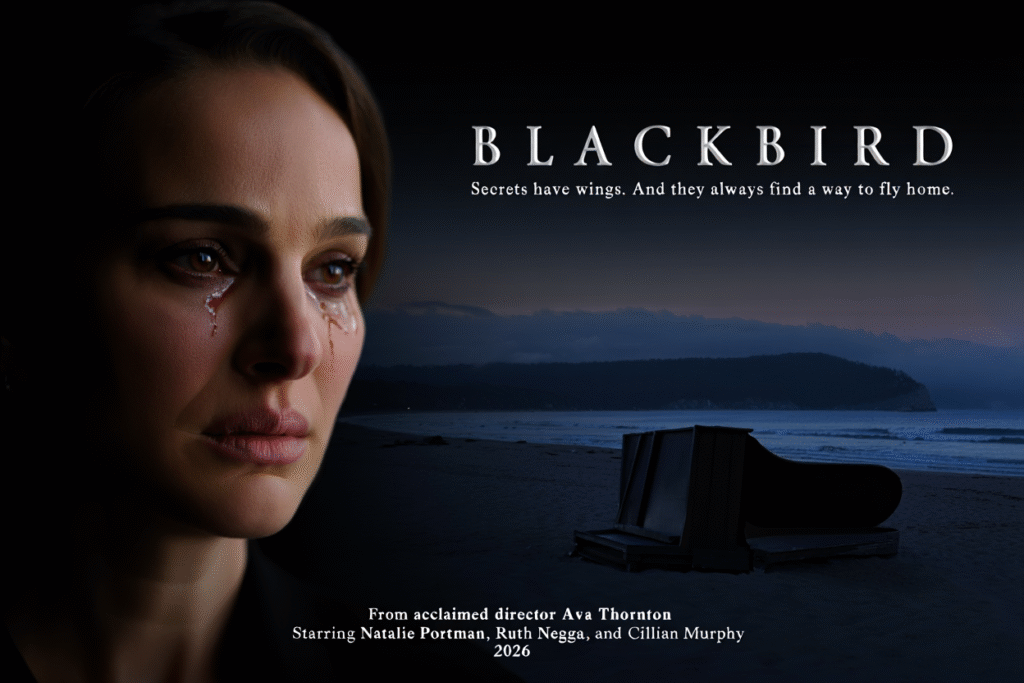
Supporting Portman is Ruth Negga as a local journalist whose tenacity veers dangerously close to obsession. Her character, Maren, becomes both ally and mirror, reflecting Elena’s own hunger for answers and her fear of what those answers might reveal. Negga brings fire to the role, grounding the film in sharp determination amidst its more spectral tones. Her exchanges with Portman are riveting—two women circling truths they can’t fully trust.
Cillian Murphy, in turn, brings an unsettling fragility to Daniel, Elena’s childhood friend. His every word seems wrapped in hesitation, as though he knows more than he can safely say. Murphy thrives in this ambiguity, inhabiting a character torn between loyalty, guilt, and the burden of buried sins. He doesn’t so much share the screen as haunt it, his presence a ghost that refuses to fade.
One of Blackbird’s most striking achievements lies in its soundscape. The score by Ludovico Einaudi is as much a storyteller as the dialogue itself. His piano-driven melodies rise and fall like crashing waves, echoing Elena’s inner turbulence. Silence is wielded just as powerfully—pauses stretched to the breaking point, inviting viewers to lean in, to listen for what isn’t being said. In Thornton’s hands, absence of sound becomes a scream.

Thematically, the film digs into the unreliable nature of memory. Flashbacks blur into hallucinations, visions cross into waking life, and Elena herself becomes an unsteady narrator of her own history. Thornton poses a chilling question: do we remember events as they truly happened, or only as our guilt and grief allow us to? The film never offers easy answers, instead leaving audiences suspended in the same uncertainty as its protagonist.
At its core, though, Blackbird is not just about memory but about betrayal—familial, communal, even self-inflicted. As Elena edges closer to the heart of the mystery, the line between who can be trusted and who is complicit dissolves entirely. Every character carries a shadow, every smile conceals a wound. Thornton refuses to reduce the narrative to a simple conspiracy; instead, she crafts a world where betrayal is less an act and more a condition of survival.
Visually and emotionally, the film achieves a poetic rhythm. The coastal imagery evokes both vastness and isolation, the perfect metaphor for Elena’s journey: endless horizons paired with the crushing weight of solitude. Deakins’ cinematography and Einaudi’s music entwine to create moments that feel less like scenes and more like memories we shouldn’t be intruding upon—intimate, fragile, sacred.
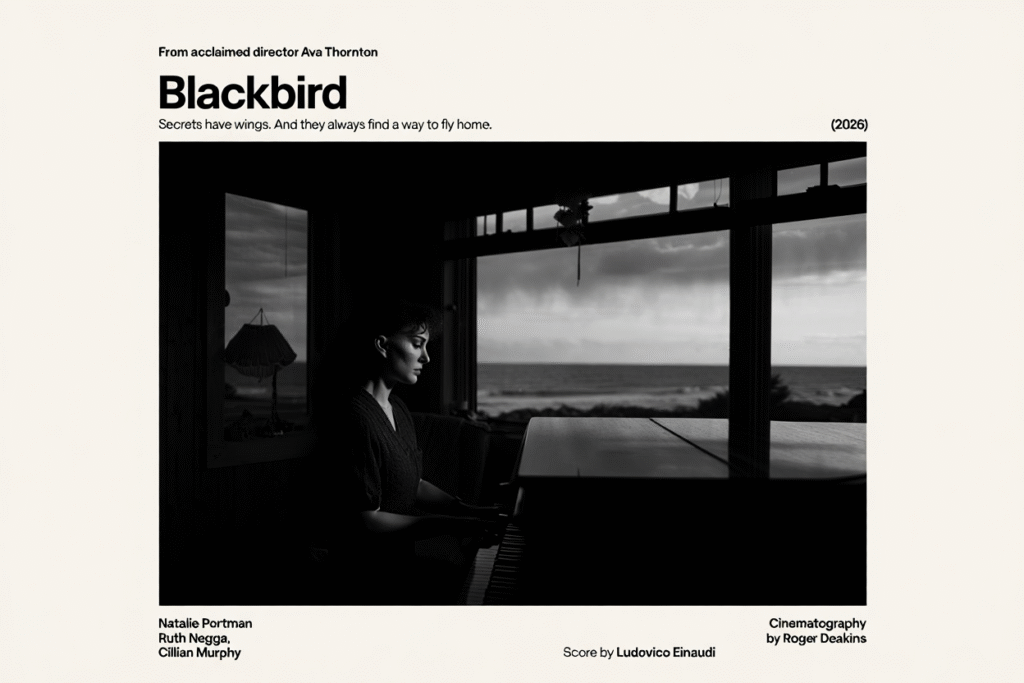
By its final act, Blackbird tightens its grip into a crescendo of revelations, yet even its answers arrive with ambiguity. The truth, when it surfaces, is devastating not for its shock but for its inevitability. Thornton trusts her audience enough to let them sit in that discomfort, never offering neat resolution. The final image is not one of closure, but of haunting release—the blackbird’s wings finally unfurled, its flight uncertain but unstoppable.
Scored at a staggering emotional high, Blackbird (2026) is a testament to what happens when direction, performance, and craft unite under a singular vision. It is haunting without horror, thrilling without gimmickry, and unforgettable without shouting for attention. Ava Thornton has given us not just a film, but an echo—a piece of art that whispers long after you leave the theater.
